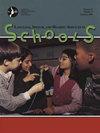Equipping Speech-Language Clinicians for the Critical Appraisal of an Artificial Intelligence-Driven, Evidence-Based Future.
IF 2.9
3区 医学
Q1 AUDIOLOGY & SPEECH-LANGUAGE PATHOLOGY
Language Speech and Hearing Services in Schools
Pub Date : 2025-05-15
DOI:10.1044/2025_lshss-24-00085
引用次数: 0
Abstract
PURPOSE Artificial intelligence (AI) is more capable and accessible than ever before. But what does this mean for clinical practice? How can speech-language clinicians evaluate the efficacy, validity, and reliability of AI and machine learning tools for automating assessment and treatment? How can speech-language clinicians ethically use these clinical AI technologies? We contend that clinical AI will best serve clinicians and clients when aligned with an evidence-based framework. Therefore, this tutorial presents guidelines for the critical appraisal of clinical AI through the lens of validity, reliability, ethical use, and equitable use, facilitated by the Critical Appraisal Rubric for Ethical and Equitable Clinical Artificial Intelligence. Similarly, in order for developers of clinical AI to meet the needs of the profession, these principles should guide the development and assessment of new clinical technologies. CONCLUSIONS The questions of efficacy, validity, reliability, ethical use, and equitable use of clinical AI can be answered through the examination of a specific clinical AI for a given user, as emphasized by culturally responsive professional practice. A framework is provided to assist clinicians in the critical appraisal of clinical AI tools.装备语音语言临床医生对人工智能驱动的,以证据为基础的未来进行批判性评估。
人工智能(AI)比以往任何时候都更有能力、更容易获得。但这对临床实践意味着什么呢?语言临床医生如何评估用于自动化评估和治疗的人工智能和机器学习工具的有效性、有效性和可靠性?语言临床医生如何合乎道德地使用这些临床人工智能技术?我们认为,当与循证框架保持一致时,临床人工智能将最好地为临床医生和客户服务。因此,本教程通过有效性、可靠性、伦理使用和公平使用的角度,通过伦理和公平临床人工智能的关键评估准则,为临床人工智能的关键评估提供指导。同样,为了使临床人工智能的开发者能够满足行业的需求,这些原则应该指导临床新技术的开发和评估。结论:临床人工智能的有效性、有效性、可靠性、伦理使用和公平使用等问题可以通过对特定用户的特定临床人工智能的检查来回答,正如文化响应型专业实践所强调的那样。提供了一个框架,以帮助临床医生对临床人工智能工具进行批判性评估。
本文章由计算机程序翻译,如有差异,请以英文原文为准。
求助全文
约1分钟内获得全文
求助全文
来源期刊

Language Speech and Hearing Services in Schools
Social Sciences-Linguistics and Language
CiteScore
4.40
自引率
12.50%
发文量
165
期刊介绍:
Mission: LSHSS publishes peer-reviewed research and other scholarly articles pertaining to the practice of audiology and speech-language pathology in the schools, focusing on children and adolescents. The journal is an international outlet for clinical research and is designed to promote development and analysis of approaches concerning the delivery of services to the school-aged population. LSHSS seeks to advance evidence-based practice by disseminating the results of new studies as well as providing a forum for critical reviews and meta-analyses of previously published work.
Scope: The broad field of audiology and speech-language pathology as practiced in schools, including aural rehabilitation; augmentative and alternative communication; childhood apraxia of speech; classroom acoustics; cognitive impairment; craniofacial disorders; fluency disorders; hearing-assistive technology; language disorders; literacy disorders including reading, writing, and spelling; motor speech disorders; speech sound disorders; swallowing, dysphagia, and feeding disorders; voice disorders.
 求助内容:
求助内容: 应助结果提醒方式:
应助结果提醒方式:


